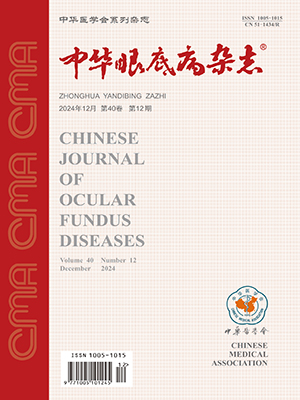Objective To observe the influence of triamcinolone acetonide (TA) on the expression of pigment epitheliumderived factor (PEDF) of human retinal pigment epithelial (RPE) cells. Methods Cultured humanRPE cells (4th-6th generations) were treated with four different concentrations of TA (40, 400, 4 times;103 and 4 times;104 mu;g/L) for three different periods (12 or 24 or 48 hours), the levels of PEDF protein in the cell culture supernatant and cell lysates were determined by Western blot. After the initial experiment, RPE cells were treated with or without tumor necrosis factor- alpha; (TNF- alpha;, 20 ng/ml) for 24 hours, followed by TA (400 mu;g/L) treatment. The levels of PEDF and phospho-p38 mitogen activated protein kinase(p-p38MAPK) protein expression in cell culture supernatant and cell lysates were measured by Western blot. Results TAtreated RPE cells had higher PEDF expression, and 400 mu;g/L TA group had the highest effect (F=16.98,P<0.05). 400 mu;g/L TA treatment for one, six or 24 hours, with or without TNF- alpha; pretreatment, could all promote the PEDF expression and inhibit the p-p38MAPK protein expression (F=16.87, 10.28; P<0.01). TNF- alpha; pretreatment alone could inhibit PEDF protein expression and promote p-p38MAPK protein expression (F=16.87, 10.28; P<0.01). Conclusions TA can up-regulate the expression of PEDF, and downregulate the expression of p-p38MAPK in the cultured human RPE cells.
Citation: ,Jie LUAN. The influence of triamcinolone acetonide on the expression of pigment epithelium-derived factor. Chinese Journal of Ocular Fundus Diseases, 2010, 26(6): 544-547. doi: Copy
Copyright © the editorial department of Chinese Journal of Ocular Fundus Diseases of West China Medical Publisher. All rights reserved




